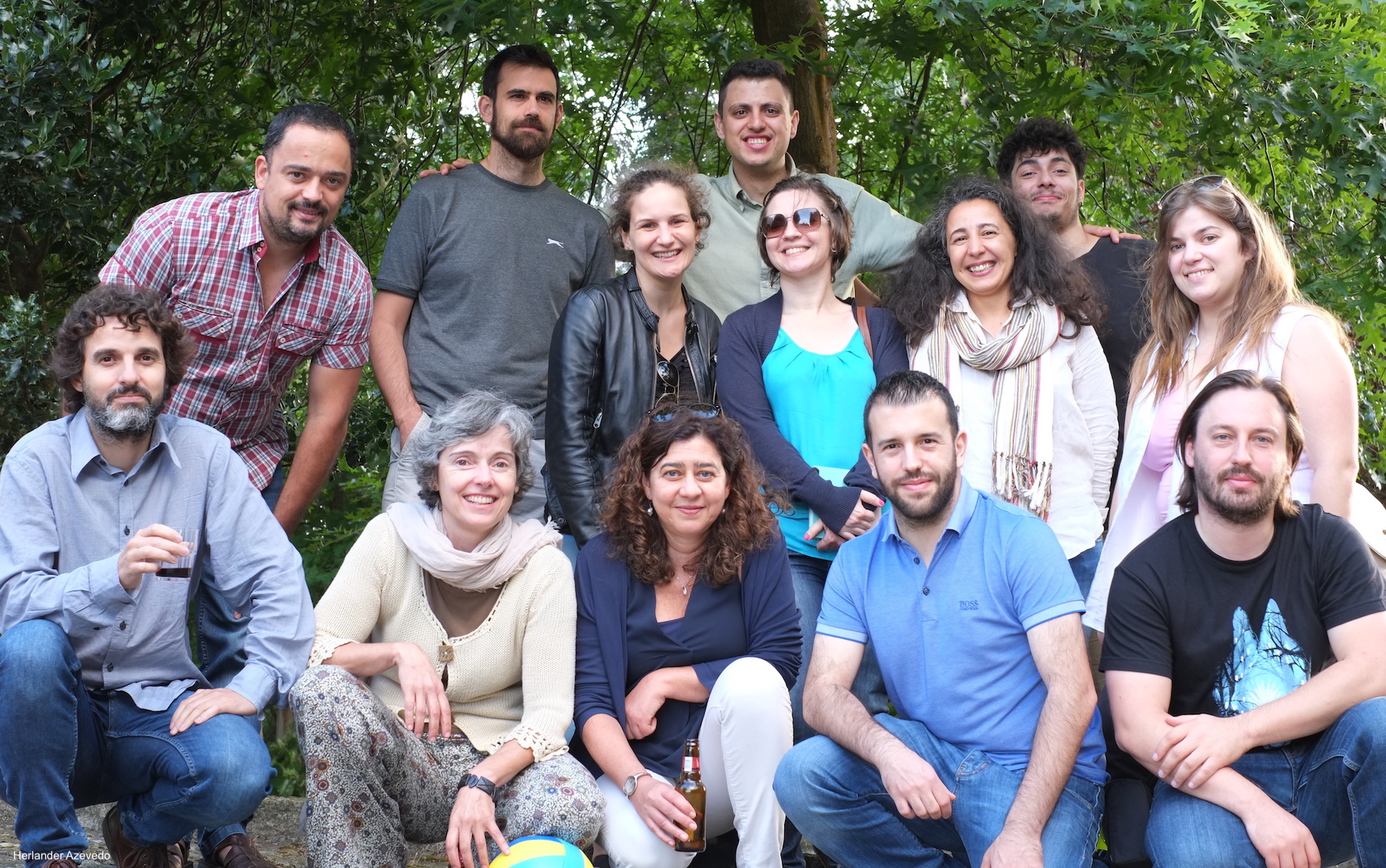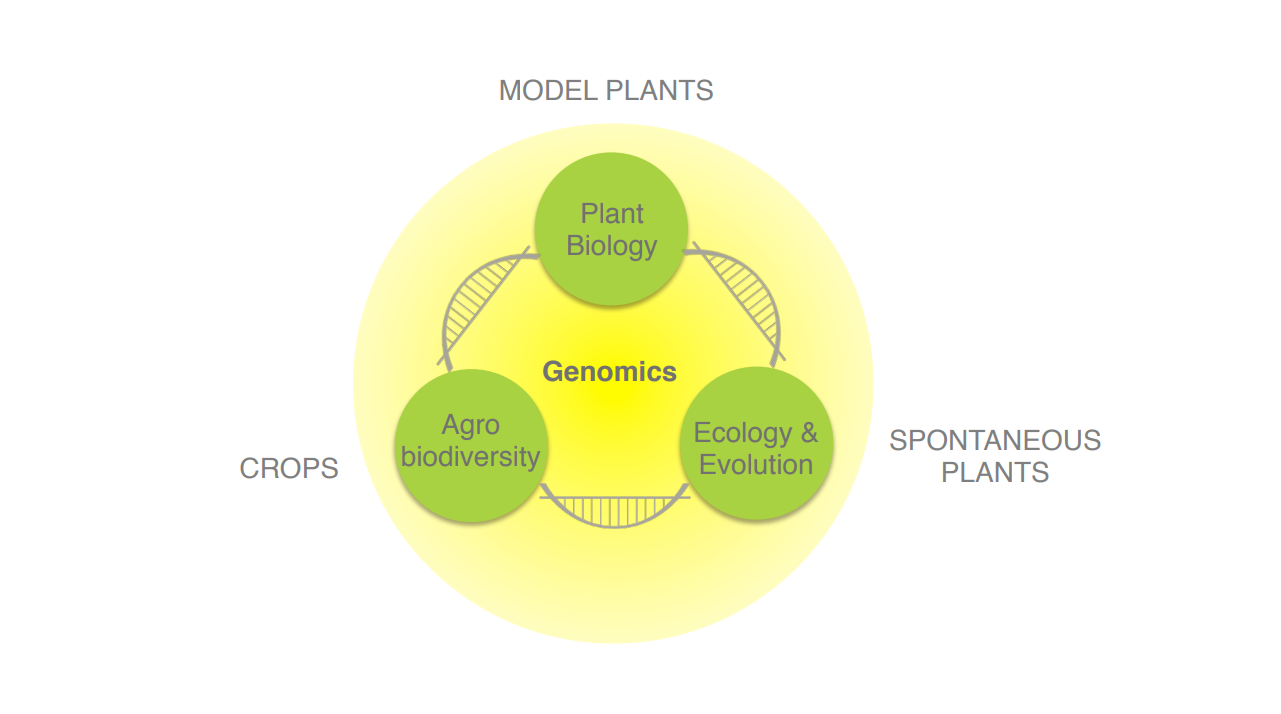Plant Biology - PLANTBIO

PLANTBIO is dedicated to the study of PLANTS throughout the full range of their complex BIOLOGY, from molecular physiology to evolutionary dynamics and ecological integration. This diversity is a key asset of PLANTBIO, with the different perspectives/skills concerning PLANTS concurring to the implementation of singular integrative approaches.
Original areas of interest include root development, nitrogen metabolism, stress resistance, micronutrient homeostasis, specialized metabolism, forest regeneration, population genetics and phylogeography. We have, notably, characterized the molecular nature of cytokinin repression during lateral root formation and suggested that a common mechanism may act on root nodules, identified new SUMO determinants of drought stress resistance, uncovered the role of F-bZIP transcription factors in the response to zinc deficiency, elucidated important regulatory mechanisms of glutamine synthetase, isolated and characterized a cell type specialized in the metabolism of anticancer alkaloids, applied novel statistical tools to forecast the response of plant communities to extreme events, and optimized models for the study of genetic divergence, important to monitor threatened species.
Original areas of interest include root development, nitrogen metabolism, stress resistance, micronutrient homeostasis, specialized metabolism, forest regeneration, population genetics and phylogeography. We have, notably, characterized the molecular nature of cytokinin repression during lateral root formation and suggested that a common mechanism may act on root nodules, identified new SUMO determinants of drought stress resistance, uncovered the role of F-bZIP transcription factors in the response to zinc deficiency, elucidated important regulatory mechanisms of glutamine synthetase, isolated and characterized a cell type specialized in the metabolism of anticancer alkaloids, applied novel statistical tools to forecast the response of plant communities to extreme events, and optimized models for the study of genetic divergence, important to monitor threatened species.
Recently, PLANTBIO has been actively gaining expertise in GENOMICS and BIOINFORMATICS, which are efficiently bridging our diverse fields and empowering our scientific objectives. Genomics of Portuguese grapevine biodiversity is currently under study, namely to enable the identification of genetic determinants of agronomic and quality/typicity traits. Looking ahead, we will continue to pursue specific questions trailing the achievements described above, and we´ve set as a central goal to focus our range of complementary skills towards harnessing the potential of national crop biodiversity and the national wealth of crop wild relatives, to face the challenges of yield, sustainability and competitiveness, in face of climate change and emerging pests and diseases.

